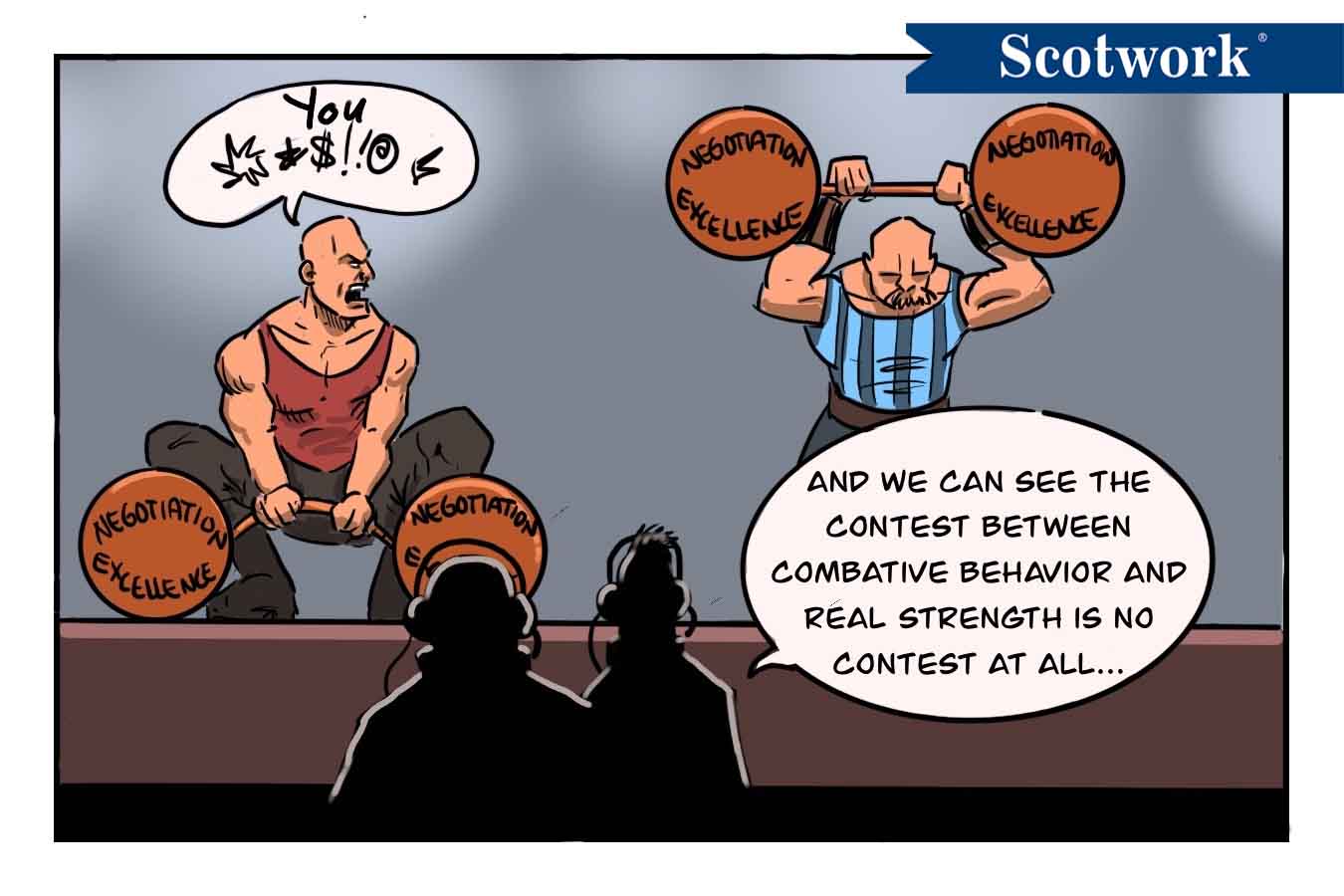Recently, I was speaking with a new prospect about a challenge he was facing. He said, “I need your negotiation training to teach my people to be more combative!”
I was puzzled by his desire for his team to be more combative. That’s not our approach at all. So, I asked him to clarify. What he really meant was that he needed his team to be stronger when facing difficult demands. That’s a world away from being combative.
The Problem with “Giving In”
Difficult demands can feel intimidating, especially if you believe you’re in a weaker power position. In those moments, many negotiators assume their only option is to give in. But giving in encourages more demands and sets a dangerous precedent for what the other side can expect moving forward. When a negotiator feels like they’re being pushed around, they might think “being combative” is the answer.
Strength Doesn’t Require Combat
In our negotiation training, we teach people how to assess their power and handle demands — all in a collaborative manner. Most business negotiations are with people we want to work with again. Combative behavior may get short-term concessions, but it almost always damages long-term relationships.
So, how do you stay strong in the moment without becoming combative? Here are 3 key strategies . . .
- Dig Deeper into the Demand
Ask them questions: Why is this important? Why now? What happens if this isn’t possible?
As a negotiator, your job is to uncover whether the demand is real or just a tactic. Some people make aggressive demands simply to test boundaries. Others have legitimate needs. Knowing the difference helps you respond appropriately.
- Understand Your Power
People negotiate to serve their own interests. So, ask yourself, “Why are they negotiating with me?”
If someone keeps telling you to “sharpen your pencil,” ask, “If my price is so high, why are we still having this conversation?” That question often reveals there’s something more they value — and price isn’t the only factor. Understanding what they want from you gives you insight into your power. - Stay Collaborative — Even with a Competitive Counterpart
In my article Be Nice… Until It’s Time to Not Be Nice, I explored the importance of collaboration and how to respond when things get competitive. What I didn’t emphasize is that you can still take a collaborative approach even when facing a competitive person. When both sides go competitive, everyone loses. But if you remain collaborative, you’re more likely to influence the outcome constructively.
Let’s say they insist on using their contract instead of yours. Instead of arguing about it, ask yourself, “What do I need in return?” Maybe it’s the inclusion of language that protects your interests or an expedited signing process. Use their demand as a chance to trade, not to fight.
Result: Winning While Preserving the Relationship
The good news? That prospect is now a client. The even better news? His team will practice these techniques during negotiation training, along with other tools for dealing with difficult situations while preserving their relationships.
We Can Help You Negotiate with Strength in Every Deal.
If the other side is combative or you’re in a low-power position, Scotwork’s negotiation training and consulting will give you the tools for dealing with those situations while preserving a productive relationship.

